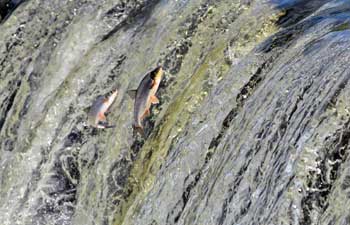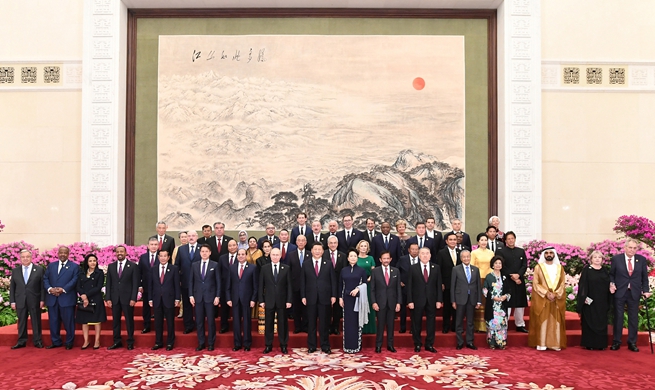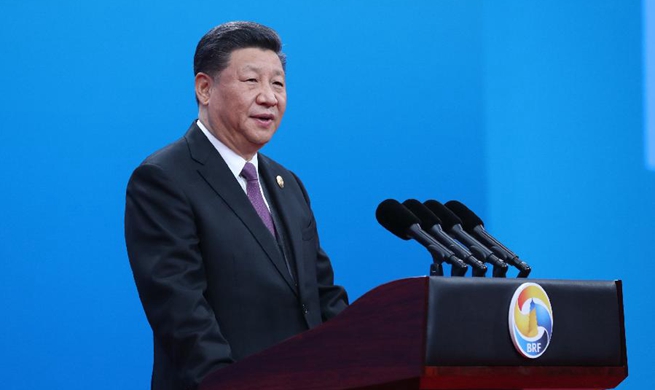SHANGHAI, April 27 (Xinhua) -- A new study by Chinese researchers shows that taking fish oil can protect heart health against exposure to PM2.5, a key indicator of air pollution.
Previous studies have demonstrated that exposure to fine particulate matter PM2.5 is associated with increased heart morbidity and mortality.
In addition to taking efforts to improve air quality, scientists think dietary supplementation may present another approach to mitigate the health hazards due to pollution.
Researchers from Fudan University based in Shanghai focused on fish oil. It is rich in omega-3 fatty acids that can provide many health benefits, such as reducing blood pressure levels, improving eyesight and fighting depression.
They conducted a four-month trial at the university campus to evaluate whether fish oil supplementation offers cardiovascular benefits against the adverse effects of PM2.5 exposure among adults.
The study recruited 65 healthy college students who were randomly assigned to two groups. Participants in one group were instructed to take two capsules (1.25 g each) of marine-derived fish oil every day, while the other group throughout the study period received two capsules of sunflower-seed oil, which had an identical appearance with the fish-oil capsule.
To obtain real-time measurements of PM2.5 concentrations, researchers installed an environmental dust monitor on the rooftop of a building in the center of the campus.
After the trial, all participants went through health examinations. Researchers measured blood pressure and 18 biomarkers that have shown associations with heart health, such as biomarkers of inflammation, blood clotting and metabolic disorders.
Researchers found that most biomarkers in the seed-oil group tended to significantly respond to higher PM2.5 exposure, while, in the fish-oil group showed relatively stable levels, indicating the associations in the fish-oil group were much weaker.
Different responses between groups were also observed in the study. In the seed-oil group, a rise in PM2.5 concentration was associated with increased blood clots, inflammation, insulin resistance and release of stress hormones, which are closely related with cardiovascular diseases. However, such associations were not appeared in the fish-oil group.
PM2.5 was not associated with blood pressure in either group.
Researchers believed that their study found protective effects of fish-oil supplementation on ameliorating biomarkers of cardiovascular disease that induced by PM2.5 exposure.
The results were published in the Journal of the American College of Cardiology.
Researchers revealed the limitations of the study. They estimated exposure on the basis of an outdoor monitor on campus but did not have personal data on PM2.5 exposure. In addition, participants in the study were college students, but researchers are not sure elder adults will have the same results.
Despite these limitations, according to the lead researcher Kan Haidong, the use of fish oil preferentially benefited patients living in areas with sever air pollution.
"The study suggests that dietary fish oil supplementation may represent a more simple and effective method than the use of mask or air purifier, to protect heart health against exposure to air pollution," said Kan.

















